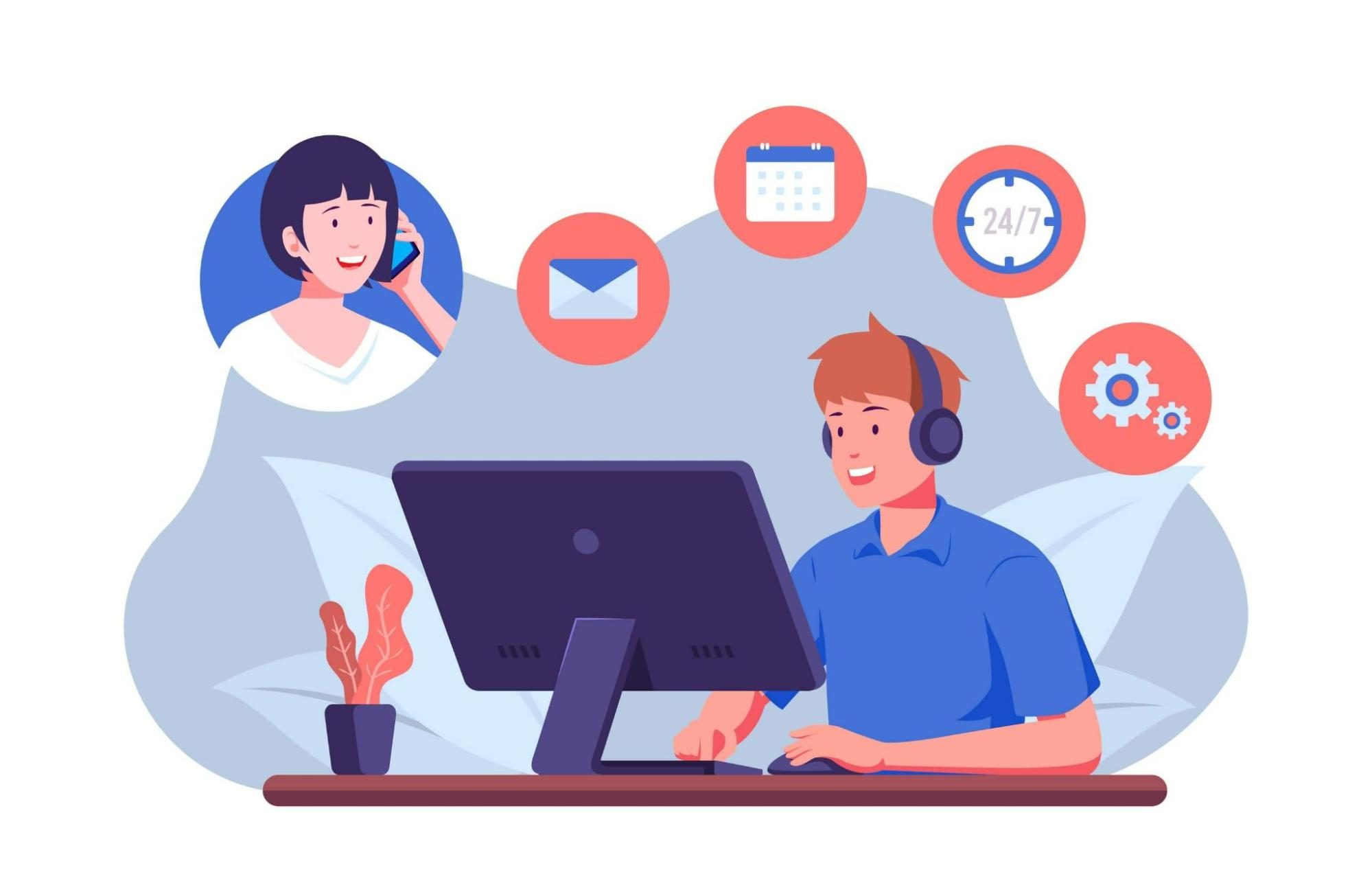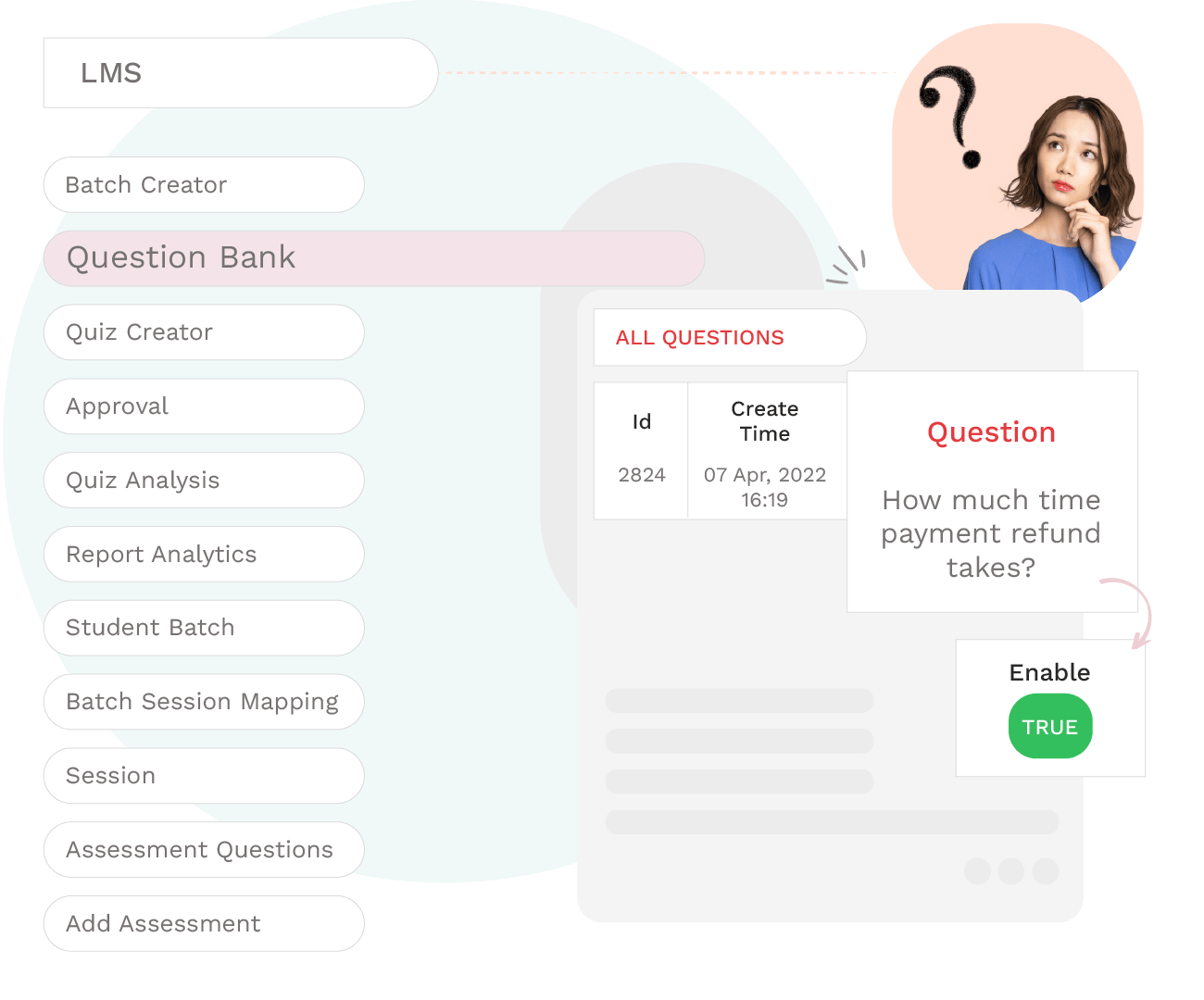Today’s informed customers hold the power. Easy access to information equips them to make smarter choices about the brands they support. In this environment, neglecting customer experience (CX) becomes detrimental. Understand why customers leave your business and actively prevent churn.
Retention goes hand-in-hand with acquisition for sustainable growth. Loyal customers not only provide repeat business but also act as brand advocates through positive recommendations. Investing in their satisfaction creates a strong foundation for long-term success.
Why is Retaining Customers Important?
In addition to measuring a company’s effectiveness in attracting new clients, customer retention also indicates how well it keeps its current clientele happy. It increases the driving force of word-of-mouth advertising, generates goodwill with employees and customers alike, prevents customer attrition—and brings in new business.
Retaining existing customers is a strategic investment. It’s generally less expensive and easier than acquiring new ones. Returning customers are important to develop business because they spend more money and buy more frequently.
“A 5% improvement in client retention can result in revenue improvements for businesses of 25–95%.“
Source
Rapid growth can create a retention paradox. While businesses naturally want to retain existing customers, scaling their customer care programs alongside a booming customer base can be difficult. This can lead to neglected existing clients, jeopardizing valuable relationships just as the company expands.
9 Reasons Companies are Losing Customers
The old saying “the customer is always right” may be accurate, but it doesn’t mean you have to agree with them. There are many reasons companies lose customers; the most common ones include a poor product, lousy customer service, price increases, and changes in market conditions. Moreover, the lose customers meaning is due to dissatisfaction, competition, or external factors.
Here are the top 11 reasons for companies losing customers:
1. Poor Customer Service
Poor customer service is the primary reason for companies losing customers. If a company doesn’t deliver what it promises makes promises that can’t be kept, customers will quickly lose faith in them. This can happen even if the product or service is good — customers expect good customer service as part of any purchase.
Customers today want more than resolution; they want to feel valued. They want resolution fast and efficiently, yet lightly human. A company that listens, empathizes, and sincerely tries to help stands out. And let’s be honest—word spreads fast. A disappointed customer doesn’t just leave; they leave negative reviews that can deter other customers.

2. Product and service not up to the expectations
A product or service that doesn’t live up to expectations is another common reason for losing customers. Customers don’t want to pay for something that doesn’t do what they expect it to do — they’ll seek out other options instead. When selling a product, ensure you know its features and benefits and how people will use them. Then promote how your company can help them achieve those goals more efficiently than anyone else.
Companies that are honest about what benefits their products bring will build long-term credibility. Instead of making over-the-top claims, focus on delivering real value. If a product has limitations, acknowledge them—and offer solutions. Regularly gathering customer feedback and refining products based on real user experiences ensures that expectations align with reality.
3. Business Inconsistency
Consistency is essential in many aspects of your business, but retaining customers is imperative. Customers may become frustrated or confused if you aren’t consistent with your approach.
Consistency can also be good when delivering products and services and billing them. For example, if customers were able to get a refund because they didn’t like one product but couldn’t get the same treatment for another item they bought at the same time (such as an umbrella), then there would be no incentive for them to return later when their first choice had been sold out again!
About one-third of all customers might leave a brand after a single bad experience, and again, in most cases, inconsistency is to blame.
Solution? Put processes in place, communicate clearly, and train your employees. Ensure everyone understands the company’s policies and procedures to create a uniform experience.
4. Slow Response Time
In today’s competitive market, response time is key to customer satisfaction and retention. Customers have high expectations from their businesses. They expect that you will respond to their queries quickly and efficiently. They also hope that you will provide them with accurate information about your products or services so that they can make an informed decision about buying from you in the first place.

Suppose a customer doesn’t receive timely responses from your team. In that case, they might choose another option instead of buying from you again or hanging around waiting for a response from someone else who may not even be aware of the issue yet!
Every second counts. A delay in answering a simple product inquiry could mean the difference between securing a sale and losing it to a competitor with faster service.
A delay in responding to a simple product inquiry can change from closing to losing a sale to a faster competitor.
AI-powered chatbots for immediate responses, automated email replies, and obvious response-time targets for a support team are a necessity these days. Social media, live chat, and text messaging could be tools and techniques to help in real-time engagement.
5. Lack of Trained Agents
Building a solid and knowledgeable team of customer service professionals is one of the essential factors in client retention. Agents must be trained on the organization’s policies and procedures and your business’s products and services. They also need to know how to respond to customer complaints and feedback, which can be difficult if they don’t have the necessary understanding.
Due to inadequate training, both customers and employees experience subpar customer service. Any business looking to improve performance must have a strong foundation in customer service, especially regarding how well employees treat clients at every point of contact (this includes before purchasing something).

Kapture’s learning management system is web-based software that you may access at any time and from any location. It helps you to build, administer, and track online employee education and training programs. It provides a one-stop shop for both pre-and post-training needs and can be used to instruct learners both locally and remotely.
6. Over-Promising and Under-Delivering
Businesses often promise more than they can deliver, which can upset and frustrate customers. To prevent this from happening, employees must be able to accurately assess situations and provide customers with an honest assessment of what they can expect from your company. If you promise something without knowing how to deliver it, people will eventually get frustrated and move on from your company. Understanding how to respond to losing a client can help rebuild trust and improve future retention.
The key here is communication: ensure everyone knows what’s happening at all times (even if it’s just between two employees). Suppose there’s no communication about what’s happening with an order or product delivery. In that case, there will be confusion among potential customers who may think something else has happened instead of what happened!
7. Misunderstanding Customer’s Attitude
Customers have personalities and can react differently when things don’t go as expected. Some customers may understand the problem and even offer to help you fix it; others will get frustrated and leave. Your job is to know how people might react to best prepare for any situation. To get ahead of the curve, you need to be able to anticipate your customer’s needs. You can ask them questions and listen carefully when they answer. This will help you understand what they need and allow you to ask them questions to demonstrate your interest in helping them.
It’s also important to keep track of what your customers say about you. If they’re happy with their experience, you may want to ask them for feedback on how you can improve your products and services.
8. Being Unavailable
Not being able to respond to customer queries and provide support will result in lost revenue. If you’re not responsive to customers, they’ll go somewhere else where they can get better service. There’s no guarantee that customers will stay loyal to your business if you don’t provide the level of service they expect. You also miss out on opportunities to learn more about your customers. When unable to respond quickly and efficiently, you lose out on valuable information about what your customers want and how they use your products or services.
Offer multiple channels for communication: live chat, social media, email, and phone support, according to customers’ convenience. The same should include provisioning some automation level via AI chatbots for basic instant queries after hours. Most importantly, set expectations.
Explain to customers when they expect the organization to get back to them, it will help to build trust and reduce the loss of customers. It is not enough just to be accessible; giving customers a feeling of being listened to and valued and security in your support and encouragement is crucial.
9. Failure to Recognize Staff-Client Relationships
A company’s ability to provide quality customer service depends on the strength of its staff-client relationships. When employee-client relationships are strong, customers are satisfied and will return for future purchases. Companies that want to keep their customers happy must ensure that their employees take care of them by providing the best possible customer service.
To ensure that your employees know the importance of customer service and how it affects their jobs and those of everyone else in the company, you must emphasize this information during orientation or on staff handbooks.
Customers want to feel valued, usually from small daily interactions with your team. Customer loyalty will weaken when a business sees employees as interchangeable parts instead of relationship builders.
The solution? Invest in training that emphasizes customer relationships, not just transactions. Move beyond scripted interactions that robots can perform and allow employees to treat customers as human beings. Let employees get to know their customers: figure out their likes and dislikes, remember their past behaviors, and follow up with them when appropriate.
The Bottom Line
As a customer-centric business, it is important to understand how your customers view your business. An excellent way to do this is by using customer satisfaction surveys. This will help you know what kind of feedback and suggestions your customers have for improvement in the future. It will also help you understand whether they are satisfied with their experience, which can be used as indicators before deciding whether to retain them.
Contact our product team at Kapture to learn more about Kapture’s service software, which can help optimize your customer service processes.
About the Author | |
 | Chandan Das |
| Chandan is a Content Writer at Kapture who enjoys writing about various niches that help businesses achieve their mission and vision. | |
,
,
,
,
,
,
,
,
,
,
,
,
,
FAQs
1 What are the primary reasons businesses lose customers?
Customers leave and move towards competitors when they feel ignored, unappreciated, or find something better elsewhere. Inconsistent service, poor communication, and failure to evolve also push them away. A bad experience can be all it takes to send them running to a competitor.
2 How does poor customer service affect customers?
It frustrates and wastes their time, and customers lose trust. Some silently walk away, while others vent online or to friends—damaging a brand’s reputation and customer loss. Worst of all, they may never give the company another chance.
3 What are the reasons for client turnover
Broken promises, disengagement, and slow responses tempt clients to question their allegiance. Feeling neglected or perceiving insufficient value, they will move on to the hands of competitors who prioritize them.
4 5 reasons why customers leave
- They feel unappreciated.
- Communication is poor or nonexistent.
- A competitor offers something better.
- Quality and service are inconsistent.
- Slow Customer support
5 What is the main cause of customer attrition?
Neglect. Once a business treats customers as numbers rather than people, they will find someone else who recognizes their value. Business loss reasons include failing to acknowledge customer needs and their trust. Loyalty does not hinge on much better pricing but simply demands that you hear, respect, and tend to them.








